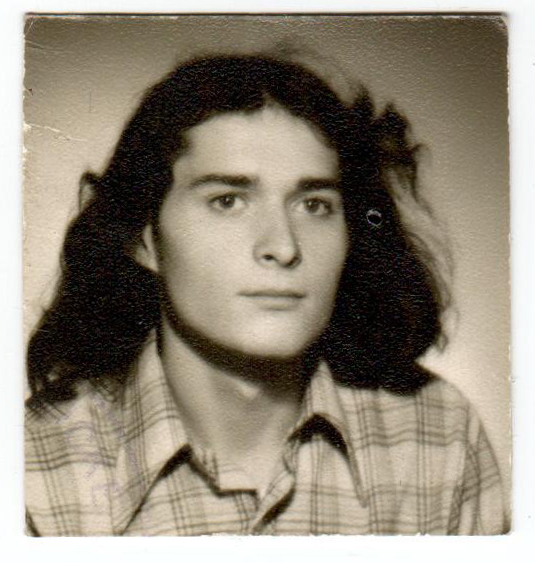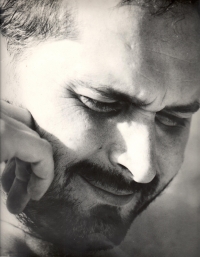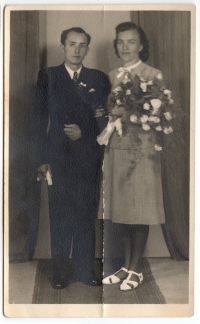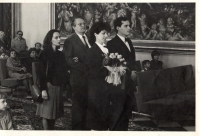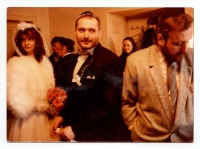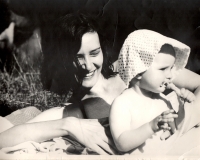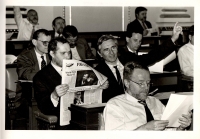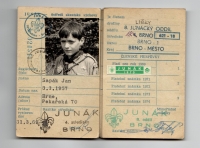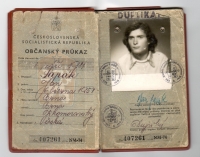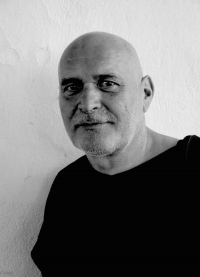"In that house where I lived, one Miloš Pazdírek lived, and he was the same age as my sister which is closest to me. And he had historical motorcycles, old ones. And at Moravské náměstí [Moravian Square], where the Rudé Právo [Red Law] had its local branch, you don't even know what's there these days. There's some liquid bread or what is written there. At the backside. So, Rudé Právo was there but there was a gas station as well. And he went to get some gasoline there. Or so he said, but maybe he was curious and wanted to check the demonstrations as well. And when he arrived there, they systematically picked people. Actually, they cordoned off whole streets and blocks as they had done during the Heydrich Terror. They cordonned off the area and as when you use a seine net to fish out the whole pond, and they wanted to arrest all the people. Which then happened. And because there were so many cars and there were also tanks and People's Militia along with the police, and they had many buses to take the people away. And the people were hit with a big fear because they knew that it's getting tough, that it is not just some police skirmish. And then were houses for example, and they ran into those houses and stole in the apartments. They knocked, rang, begged the people and went inside. And this acquaintance of mine, in such a panic and terror, he ran into one house that stood where the parking building is now, to some lady's flat. She hid him in his flat and so on. But the policemen who combed through the houses checked all floors and created an atmosphere of a really urgent fear. So they appealed at all those people who hid someone, because they guessed or knew it, to hand the people over. And many of those people, maybe not all of them, that's what I don't know, handed them over. Because they were so consumed by fear, because it seemed that they [the police] would go on breaking into the flats, which was a possible threat. Really, that, the atmosphere, I dare say, that it would be comparable maybe with the Heydrich Terror. Thus, this lady pushed him out of the flat, there were more of them, they [police] grabbed them and in the house itself, there was the first bastonnade, they were badly beaten and the police spat at then and cursed them and beat them with the truncheons. Then he was taken to a cell in Bohunice where, as he had said, he was with some 25 guys in a normal cell which is normally for two prisoners. So they couldn't even sit down. And so it lasted for three days. And then, his mother who was a housekeeper, such a person as the housekeepers are, she guessed what was going on. She saw the body of Muzikářová, which they showed to her in morgue. And she was looking for her son. She did not find him. She also had some… she cursed the police. However in our neighbourhood, there lived a high-ranking policeman, so through this connection, she got him out of that cell after three or four days. And they said, he was not able to lie down to sleep for three or four days. He had to sleep sitting. Maybe he was on verge of death. It was quite serious. And such a case, those were almost all of them. Open terror, really, bullying, beatings. So that was the '69 in Brno. And that was maybe one of the moments which lead to the collective spirit being broken."
